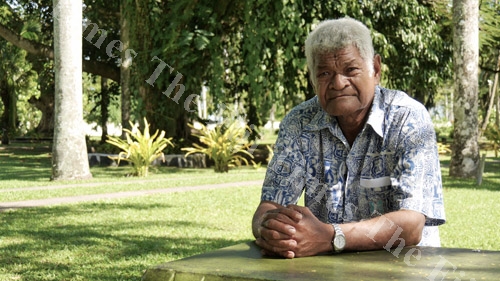WHEN government enacted a four-month ban on the fishing, sale and export of kawakawa and donu earlier this month, it was a bold move to revive the rapidly disappearing fish. But for the communities in remote Fulaga Island in the Lau Group, the seasonal ban was old news. Led by their forward-thinking chiefs, the communities there stopped fishing for kawakawa and donu during their peak breeding months, June through September, four years ago. “We heard about this campaign on the radio and from the newspaper, and we have been protecting kawakawa and donu ever since,” said Ratu Mosese, Kama, the interim chief of Fulaga. The people of Lau were having a harder and harder time catching these A-grade fish. The 4FJ campaign explained that each year, kawakawa and donu breed in large numbers, in the same places. These breeding sites were traditionally fished, but as the population and income needs in Fiji have increased, these breeding sites are being heavily overfished, leaving too few fish to restock Fiji’s fishing grounds. Based on local fishermen knowledge, the chiefs have established a two-month ban for kanace, or mullet in English, to allow it to breed. “The banning of the kanace species was our own idea so that we could still enjoy abundant supplies. This ban begins in July and ends in August,” said Ratu Mosese. But they didn’t stop there either. “We have recently found out that ose (goatfish) breeds in the month of November and banning of this species will begin soon so that it becomes the third group of protected fish in Fulaga,” he said. Joining Ratu Mosese in championing the 4FJ campaign is Matuku chief Ratu Jeremaia Coriakula, who rules over the Baba Matuku tribe. Ratu Jeremaia said while growing up in the village, only ladies went to catch kawakawa. He remembers how he watched his grandmother and mother going out with other women to catch kawakawa during its season. “Their breeding period is usually during the cold weather. The women never used fishing lines. The kawakawa would be in their holes in the reef, so all they had to do was reach in with their hands,” said. “They would catch a lot of them and fill their fishing baskets. The kawakawa would be pregnant because they had a lot of eggs.” That was the old days. “Over the years, the women have not been able to catch them that way again. There has not been as many as we used to get like before,” he said. In his capacity as a 4FJ champion and a chief for his villages, Rt Jeremaia said he encouraged and advised his people at their meetings to adhere to the seasonal ban on kawakawa and donu. “I advise the fish wardens and also talk about it at our vanua meetings. I believe it is important that we talk about it, listen to each other and we all agree to it,” said Rt Jeremaia. “We need to respect each other, only that will make our land and resources bountiful.” Ratu Mosese said Fulaga people respected the will of the chiefs which had made them prosperous over the years. “There is no resentment towards this decision because the chief who has been installed is blessed and the rule and law of the land is entirely his and the people have to abide,” he said. Now hopefully, the rest of Fiji can follow their lead, four years later. ? Alumeci Nakeke is the communications officer for cChange.




